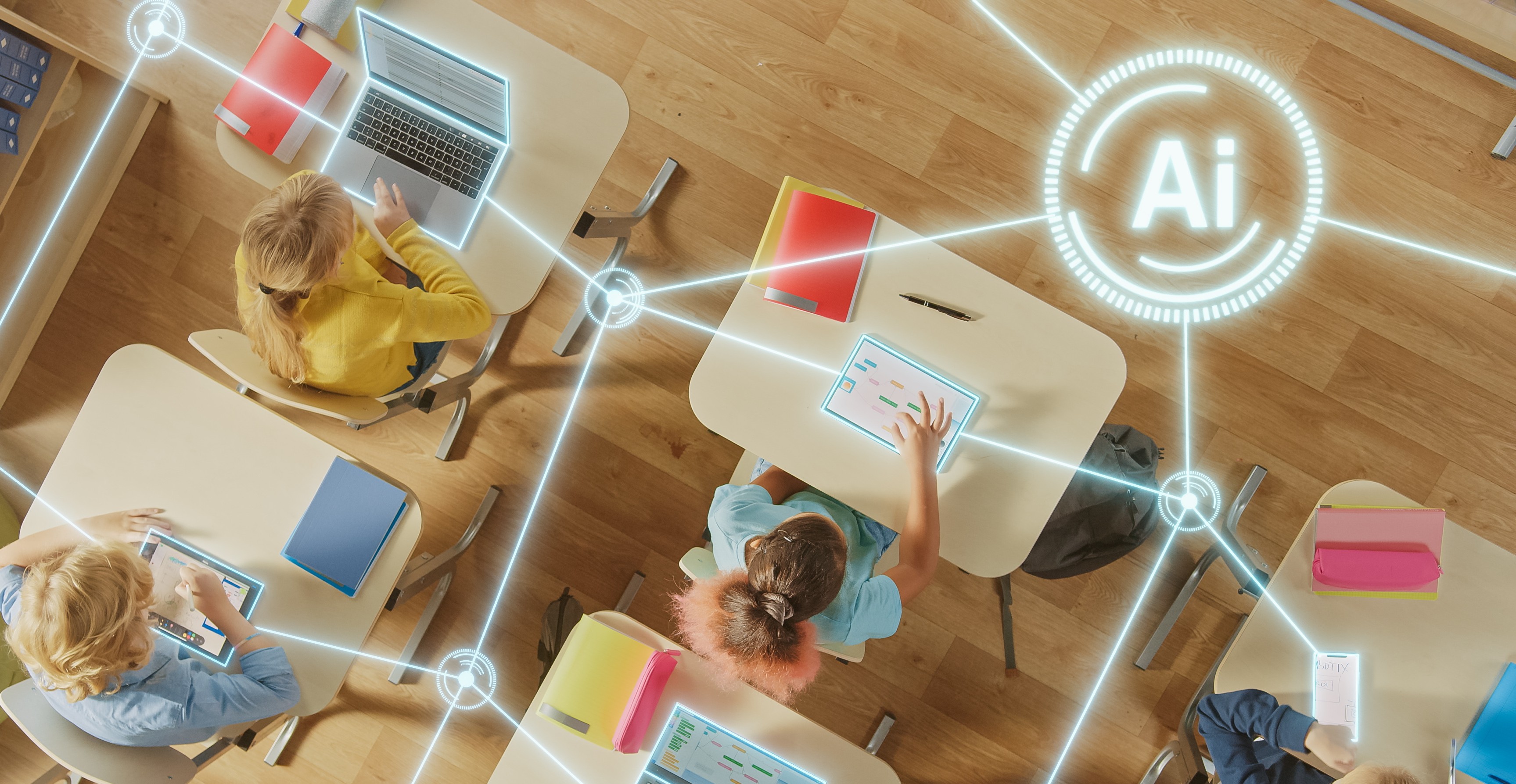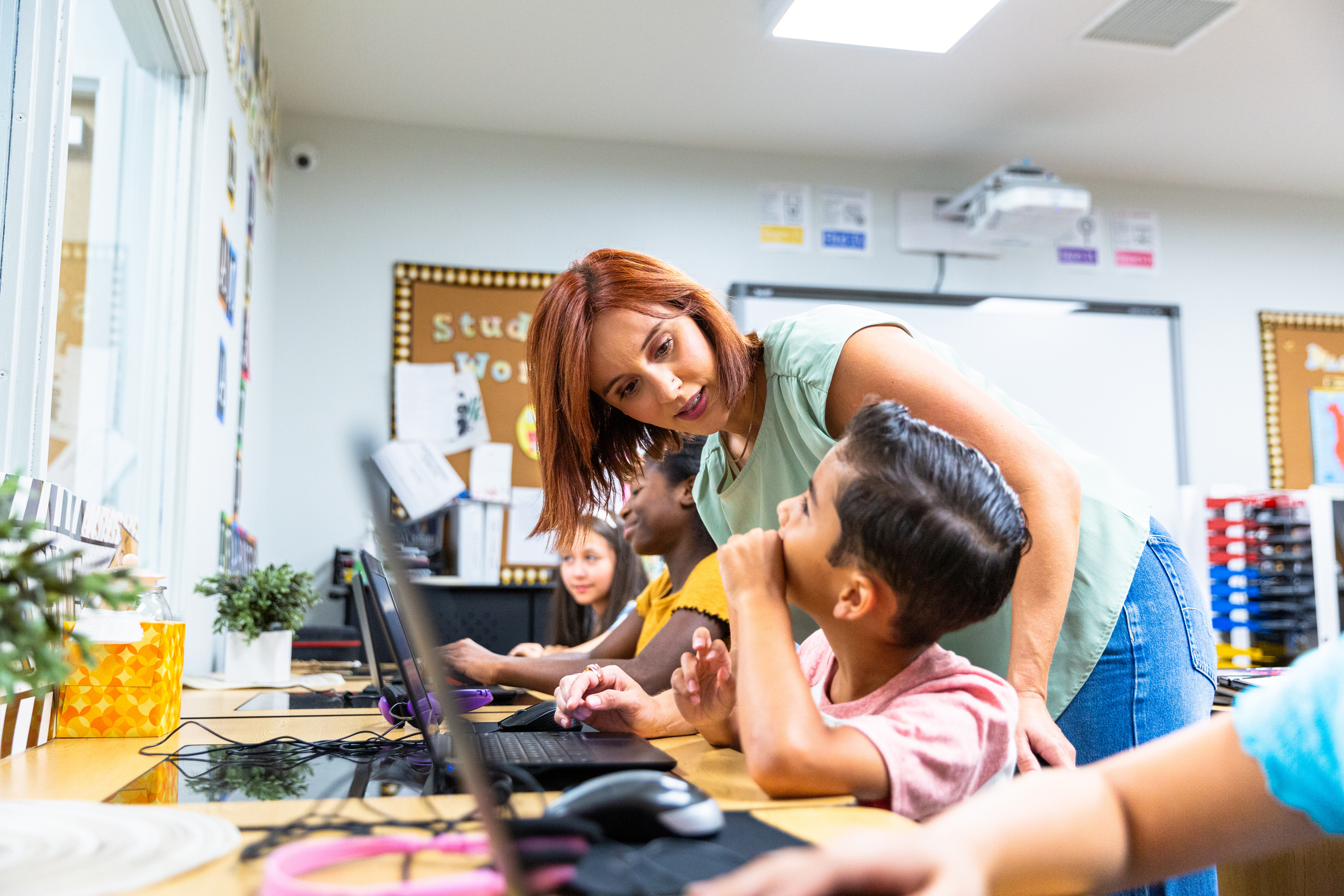Encouraging Critical Use of AI in Education: Webinar Key Takeaways



As the use of generative AI among teens continues to rise, it’s becoming increasingly important to consider how critically they engage with these tools.
A recent report by Hopelab asked more than 1200 teens and young adults about their use of AI and what they wish adults understood. Their responses ranged from self-discovery and social interaction to homework help:
“It helps me ask questions without feeling any pressure.”
“Teens use AI to pretend they have someone to talk to, or to pretend they’re talking to their favorite fictional character.”
“We use it for very creative purposes, not just cheating on homework.”
Considering that students are raising a broad spectrum of topics with AI, guidance is needed to help them understand both the possibilities and the limitations of this technology.
The Missing Link
When we looked at the stats on the guidance students receive from schools and parents, it became clear that many are left to navigate the vast and rapidly growing field of AI on their own.
A comprehensive study by Common Sense media reveals that 70% of teens have tried at least one generative AI tool, with 40% of those having used it for doing homework. Almost half of students who used it for homework (46%) admit they did so without a teacher’s permission. Another alarming finding is that more than a third (37%) are not even sure whether their school has any rules regarding AI use.
Given the versatility and potential of AI tools, the evident lack of support and clear direction could lead to misuse. Teachers and parents play a critical role here, as their informed guidance can make all the difference to how students use it. By opening the conversation about critical thinking and responsible use of AI, they can empower students with skills that strengthen both classroom learning and real-world problem solving.
This was the topic of our recent webinar with Larisa Black, Education Consultant and AI Literacy Coordinator, who has extensive experience supporting schools and educators as they adapt to the evolving landscape of artificial intelligence in the classroom.
The session covered practical strategies and discussion points aimed at equipping students with essential AI skills. Here’s a summary of what we explored.
Webinar Key Takeaways
Recognizing both the potential AI has already demonstrated and what it may achieve in the future, it is critical to address its shortcomings today. Only by doing so can we ensure that today’s teens – and the future workforce - are maximizing the potential of AI while also developing their critical thinking skills.
Why this matters
AI offers a range of advantages for students if used responsibly. Here are some of the most important ones:
- Developing life skills. AI is a key skill for the future workplace. Helping students develop it now ensures they are ready for what lies ahead.
- Unleashing creativity. There is a growing set of AI tools designed to help students both discover areas of interest and refine their creativity.
- Increasing engagement. Accessibility tools and individualized approaches help build confidence, resilience, and motivation.
- Improving study outcomes. When used constructively, AI tools can provide practical information and study support, helping students maintain focus.
With this in mind, the largest portion of our webinar focused on providing practical examples, including AI tools that can help unleash these skills.
We identified four steps as key to empowering students for a critical use of AI:
- Proactively address key topics. Teachers and parents should serve as trusted guides, not barriers, to exploring AI.
- Address limitations. Students need support in spotting when AI generates false or biased information.
- Foster openness. Create a safe environment where teens are comfortable about sharing their AI experiences.
- Highlight best practices. Provide practical examples of how AI can support research, brainstorming or creative exploration.
The full recording of the session is available below:
https://www.youtube.com/watch?v=9YZTZ3GocGE&feature=youtu.be
Our speakers have gone even further and have prepared a handout for teachers and parents with key topics to address with their teens.
To access the free handout, please fill out the form below.

A team of marketing and communication specialists exploring the incredible potential of neuroscience and AI in education.



